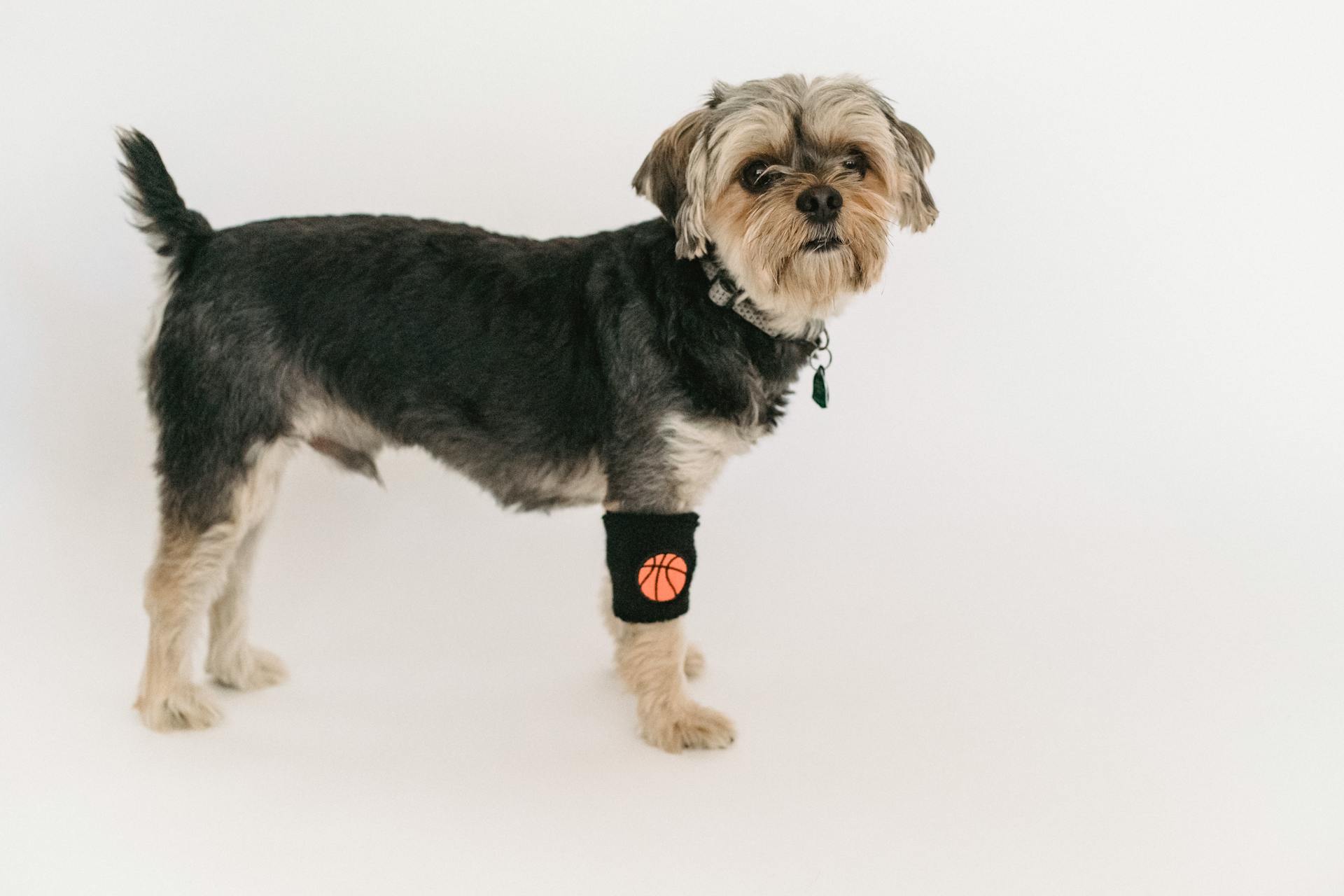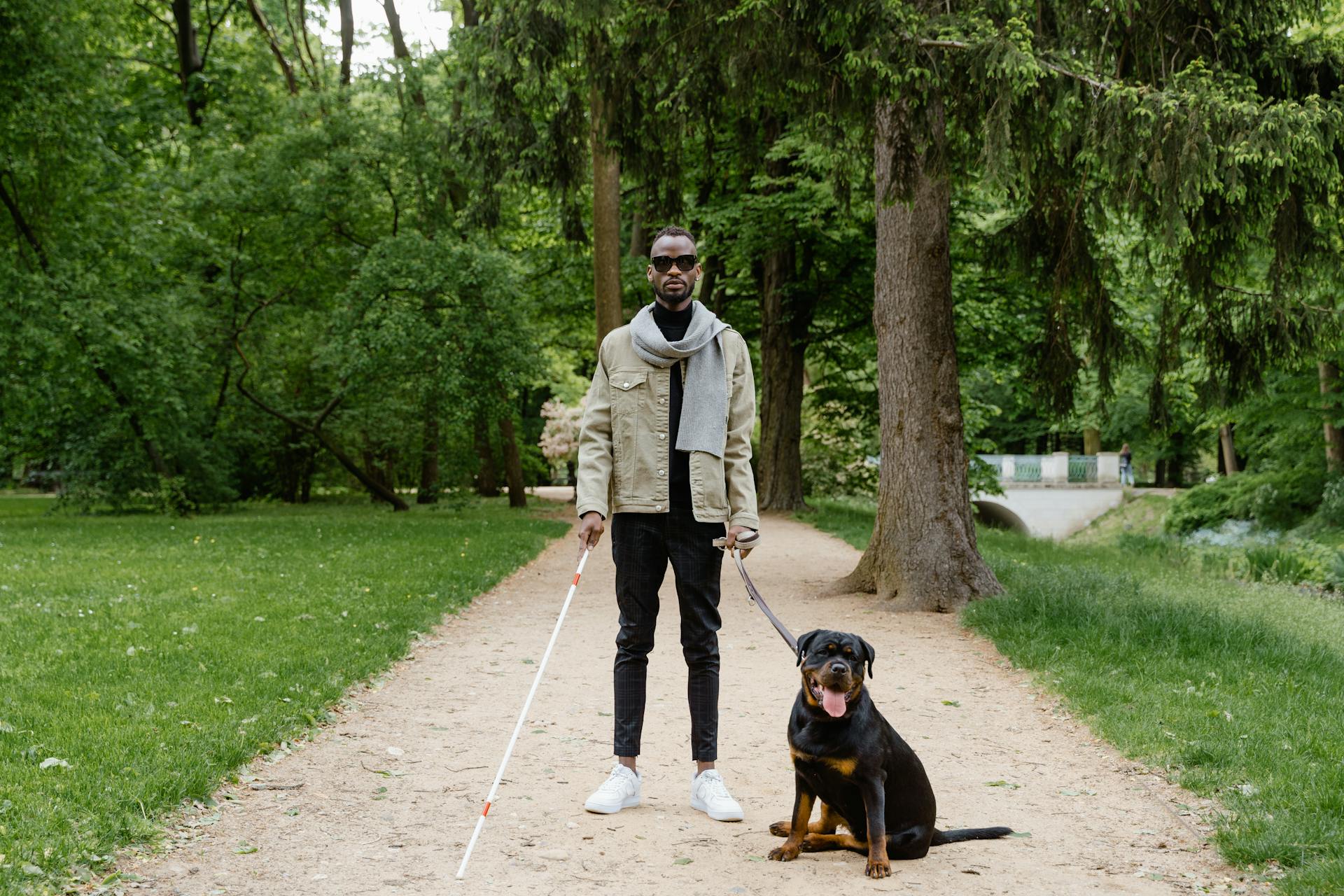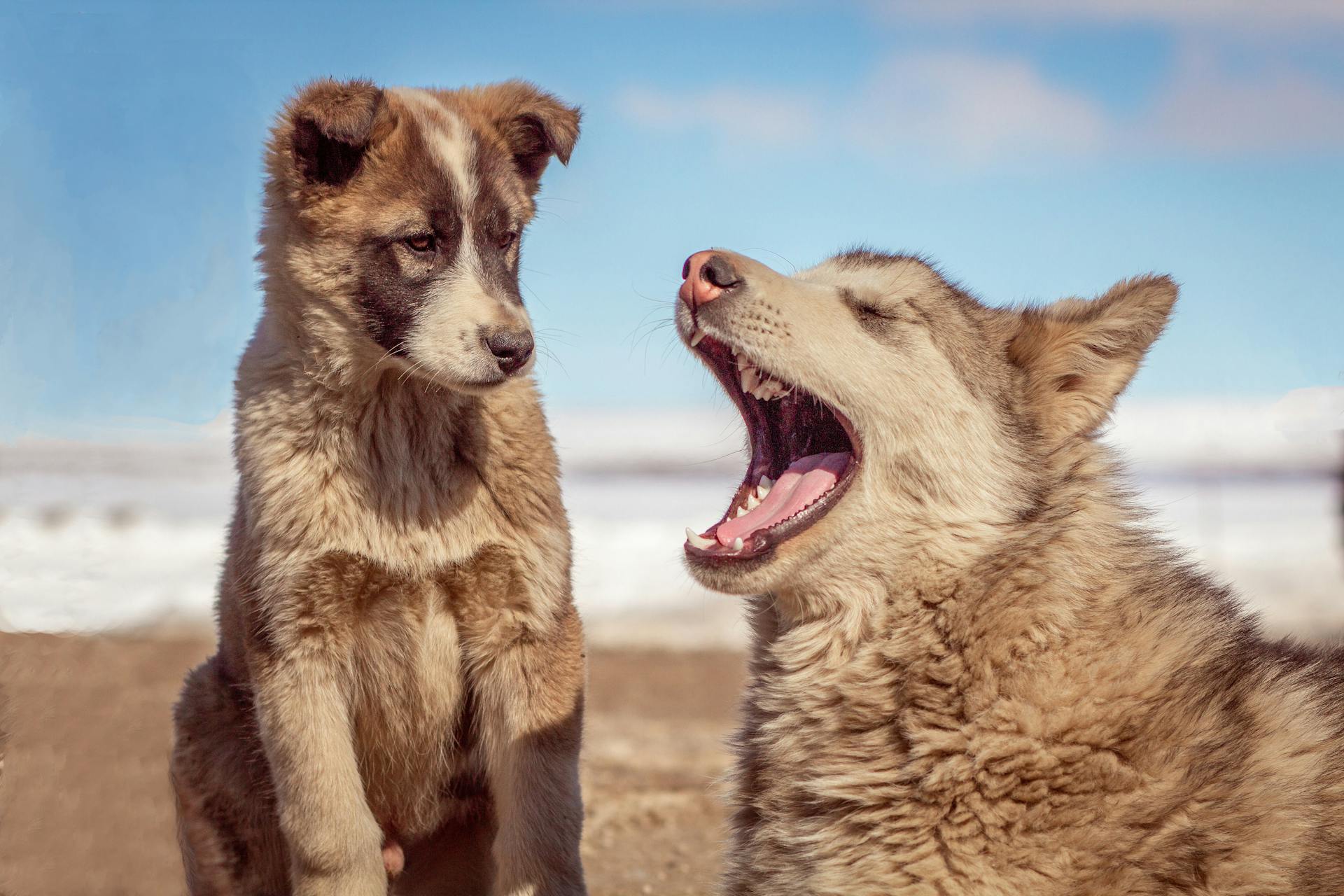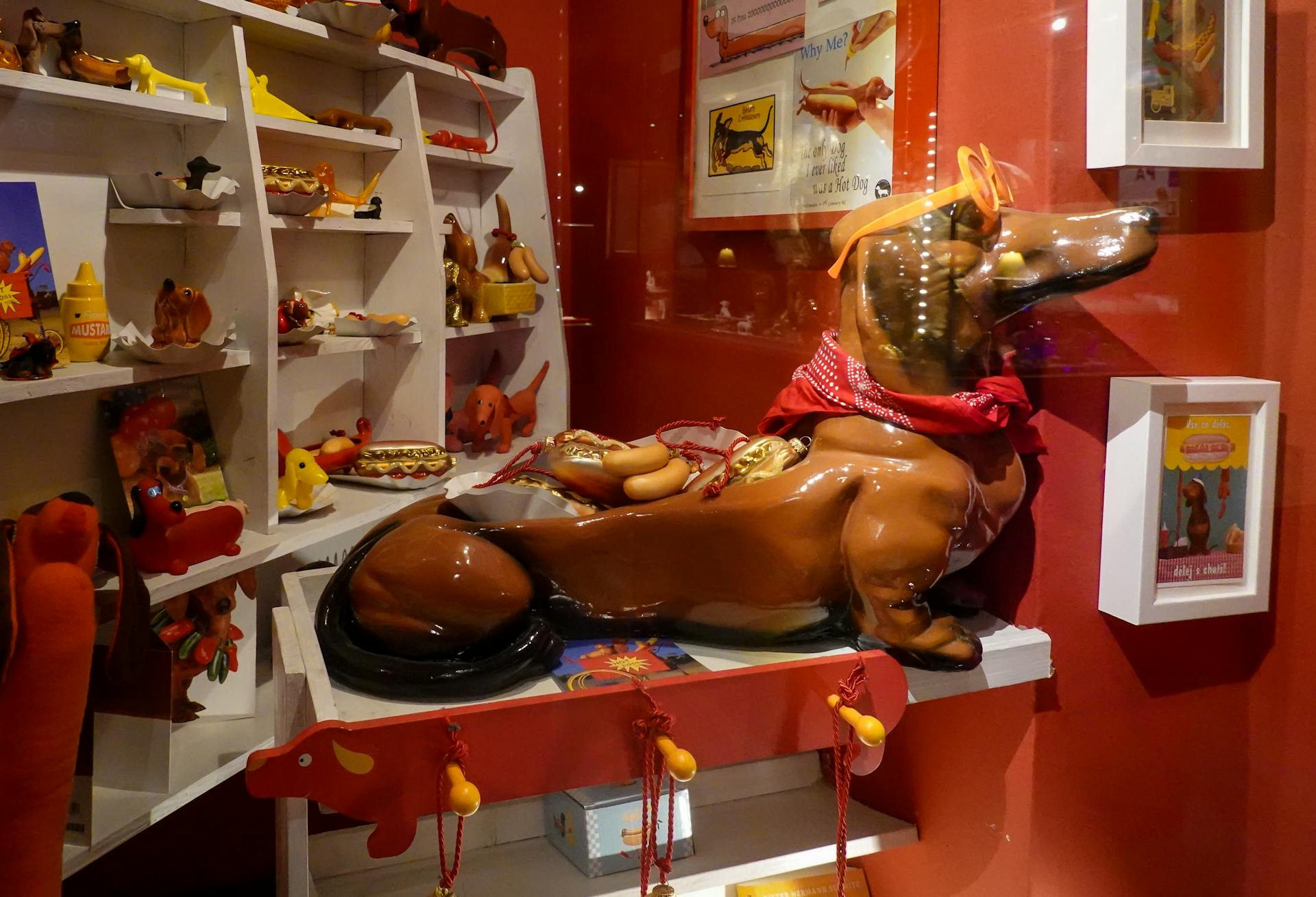
Yorkshire Terriers are prone to a unique and concerning behavior called reverse sneezing, also known as inspiratory paroxysm. This condition can be alarming, but it's usually not a cause for concern.
During a reverse sneezing episode, your Yorkshire Terrier may make loud, high-pitched sounds, like gasping or snorting, as they try to inhale. This can be triggered by allergies, nasal irritation, or even excitement.
The good news is that reverse sneezing is not a sign of a serious underlying condition, but it's still essential to address the underlying cause to prevent future episodes.
Diagnosing Reverse Sneezing
Reverse sneezing in Yorkshire terriers can be diagnosed by observing the characteristic appearance and sounds of a reverse sneeze. A veterinarian may suspect reverse sneezing based on your description.
A veterinarian will typically perform a physical examination, checking the nasal passages, mouth, and throat areas thoroughly. They may also use a rhinoscopy to look more deeply into the nasal passages for any mites, polyps, or tumors.
A sample from the nasal passages may be taken for biopsy to rule out nasal cancer. Your veterinarian will gather information about the duration and frequency of symptoms, as well as any concurrent medications your dog is being given.
If your dog is experiencing a new symptom, your veterinarian may recommend diagnostic tests to rule out other conditions such as infections, parasites, or underlying diseases. A nasal swab, x-rays, allergy testing, and bloodwork are common tests used to diagnose underlying conditions.
A video recording of an episode can help confirm the diagnosis and provide valuable information to your veterinarian. Some dogs may need a more detailed exam of the nose and throat using a scope.
Check this out: Names for Male Yorkshire Terriers
Treating Reverse Sneezing
If your Yorkshire terrier is experiencing reverse sneezing, addressing any underlying causes is key. Allergies or mites may be contributing to the issue, so it's essential to uncover and treat these conditions to reduce the frequency and intensity of episodes.
Antihistamines can help ease allergic reactions, and removing polyps or growths can allow for easier breathing. If the reverse sneezing is idiopathic, meaning the cause is unknown, it may not require treatment.
You can help shorten the duration of an attack by channeling the air through your dog's mouth rather than their spasming nasal passages. This can be done by closing off the nostrils with your hand for a few seconds and allowing your dog to breathe through their mouth instead.
Home remedies can also be effective in managing reverse sneezing. These include keeping your pet calm, speaking in soothing tones, and encouraging them to swallow with a gentle neck massage or by offering a drink of water. Sometimes, removing your dog from the situation can also help, especially if there's an obvious trigger like a smoky environment or pollen.
If your vet diagnoses your dog with reverse sneezing, you don't need to take them back to the vet every time the problem resurfaces. However, if your dog deals with reverse sneezing very often, your vet may prescribe antihistamines to help.
Additional reading: How to Draw a Yorkshire Terrier
Understanding Reverse Sneezing in Yorkshire Terriers
Reverse sneezing in Yorkshire Terriers is a common issue that can be distressing for both dogs and their owners. Symptoms include an extended neck, gasping, difficulty drawing air, snorting, and bulging eyes.
The causes of reverse sneezing in Yorkshire Terriers are varied, but common culprits include allergies, eating or drinking too fast, foreign bodies, mites, and pressure on the throat. Nasal mites can also contribute to the condition.
To help your Yorkshire Terrier, try holding their nostrils closed for a second, then lightly massaging their throat. You can also try getting them in a cool area or outside with fresh air, or trying to verbally calm them down.
Symptoms
Symptoms of reverse sneezing in Yorkshire terriers can be quite alarming, but fortunately, they usually clear up on their own within a few minutes.
Gasping is one of the most noticeable symptoms, where your dog will make a snorting sound while trying to draw air into their lungs.
The neck is often extended, and the elbows are turned out, making it look like your dog is having trouble breathing.
Another key symptom is snorting, which can be quite loud and unsettling.
Here are some common symptoms to look out for:
- Gasping
- Difficulty drawing air
- Extended neck
- Snorting
Keep in mind that these symptoms can be similar to those of tracheal collapse, a genetic disorder that's common in Yorkshire terriers.
Causes
Reverse sneezing in Yorkshire Terriers can be caused by a variety of factors, including allergies to pollen and plants, which trigger an episode of reverse sneezing instead of a traditional sneeze.
Allergens such as spores, pollen, dust, and smoke can irritate the nose and upper throat, leading to reverse sneezing. Scented room sprays, candles, perfumes, and other strong odors can also be culprits.
Getting water in the nasal passages can also cause reverse sneezing, as can foreign objects stuck in the nose. Certain underlying diseases of the nose, mouth, or throat, such as tumors, can also contribute to the condition.
Nasal mites can sometimes be a contributing factor in reverse sneezing, and dogs with long snouts are more prone to developing the condition.
Here are some common causes of reverse sneezing in Yorkshire Terriers:
- Allergies to pollen and plants
- Allergens such as spores, pollen, dust, and smoke
- Scented room sprays, candles, perfumes, and other strong odors
- Getting water in the nasal passages
- Foreign objects stuck in the nose
- Nasal mites
- Dogs with long snouts
It's essential to rule out severe underlying conditions such as collapsing trachea, nasal tumors, or other similar problems before diagnosing reverse sneezing of an unknown cause.
Veterinary Care for Reverse Sneezing
Reverse sneezing in Yorkshire terriers can be a concerning symptom, but in most cases, it's not a cause for immediate alarm. In fact, reverse sneezing is extremely rare for being an emergency.
If your Yorkshire terrier is experiencing reverse sneezing, it's essential to keep an eye on their behavior and overall health. If they're acting like their normal self before and after the episode, there's usually no need to rush to the vet.
However, if reverse sneezing is new or getting worse, it's crucial to schedule a vet visit. This is especially true for dogs with underlying respiratory conditions, such as a collapsing trachea or COPD.
Your vet can help you create a management plan to ensure your Yorkshire terrier's quality of life isn't affected by reverse sneezing.
Frequently Asked Questions
When should I worry about reverse sneezing?
Consult a veterinarian if your dog's reverse sneezing episodes are severe, recurring, or accompanied by difficulty breathing. If you're unsure, it's always best to err on the side of caution and seek professional advice.
How do I get my dog to stop reverse sneezing?
Gently stroking your dog's neck or head can help calm them during a reverse sneezing episode. Stimulating swallowing with a treat or drink may also help clear the irritant and stop the sneezing.
How do you tell the difference between reverse sneezing and tracheal collapse Yorkies?
Dogs experiencing reverse sneezing will make a loud snorting sound, while those with tracheal collapse will produce a loud 'honking' sound. If your Yorkie is making a loud, honking sound, it may be a sign of tracheal collapse and requires immediate veterinary attention
Sources
- https://wagwalking.com/condition/reverse-sneezing
- https://bondvet.com/b/reverse-sneezing-in-dogs
- https://lakecityanimalhospital.com/blog/reverse-sneezing-in-dogs-causes-and-what-to-do/
- https://www.akc.org/expert-advice/health/what-happens-when-a-dog-reverse-sneezes/
- https://chfa.net/resources/blog/441-reverse-sneezing-in-dogs-what-it-sounds-like-and-what-to-do
Featured Images: pexels.com


